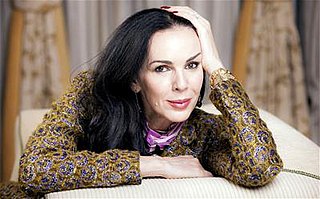A Quote by Joyce Banda
I have always said that I want Malawi to attain growth that should not just be seen in GDP, but in the growth of opportunities for all, protection for all, and equality for all.
Quote Topics
Related Quotes
There's no growth. If China has a GDP of 7 percent, it's like a national catastrophe. We're down at 1 percent. And that's, like, no growth. And we're going lower, in my opinion. And a lot of it has to do with the fact that our taxes are so high, just about the highest in the world. And I'm bringing them down to one of the lower in the world.
I advise other companies' CEOs, don't fall into the trap where you go, 'Where's the growth? Where's the growth?' Where's the growth?' They feel a tremendous pressure to grow. Well, sometimes you can't grow. Sometimes you don't want to grow. In certain businesses, growth means you either take on bad clients, excess risk, or too much leverage.


































